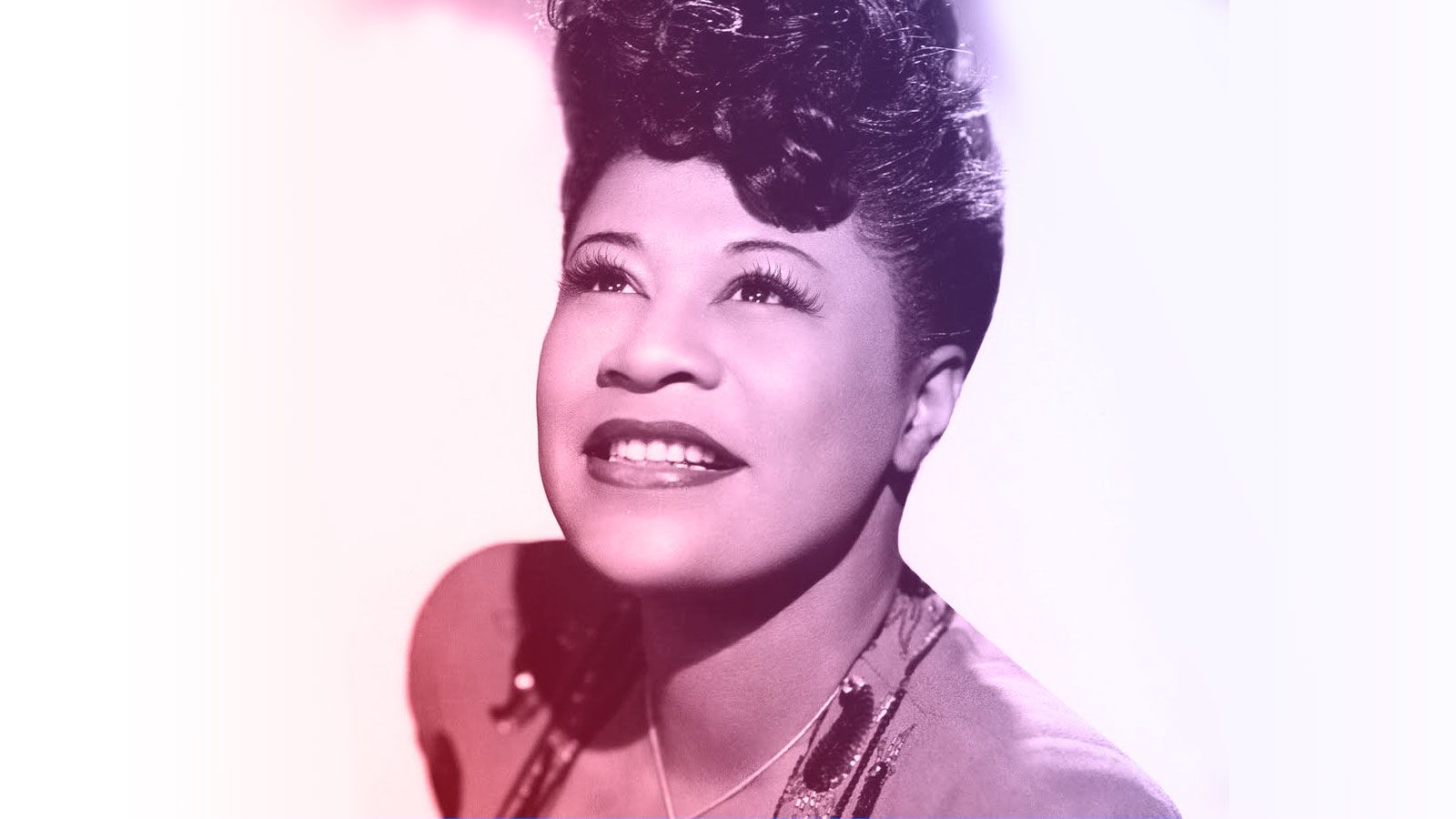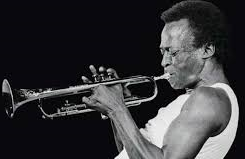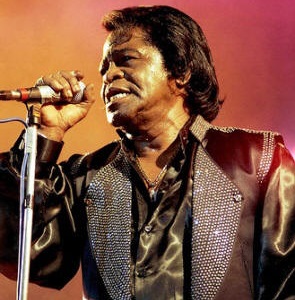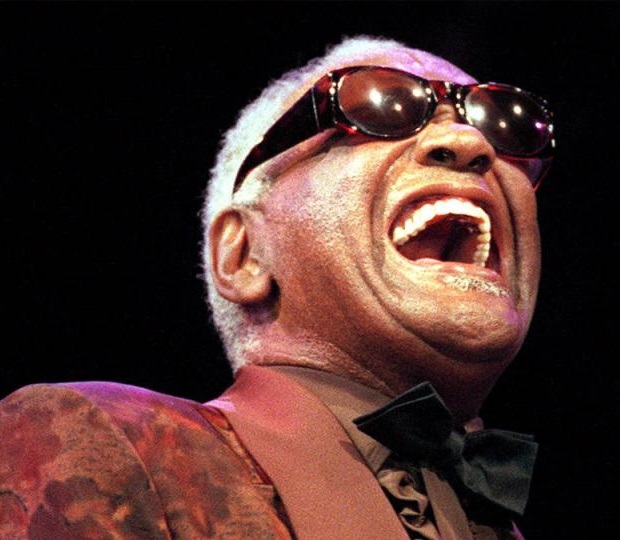February is Black History Month. This years theme is African Americans and the Arts. So throughout the month, I will highlight influential and well-known African American writers, musicians, and actors. For more information about Black History Month 2024 see the Association for the Study of African American Life and History and the National Museum of African American History and Culture.
In American music history, Ella Jane Fitzgerald (April 25, 1917 – June 15, 1996) stands out as the captivating voice that gracefully emerged from humble beginnings to claim the title of the “First Lady of Song.” Born in Newport News, Virginia, Ella’s journey unfolds like a harmonious melody, with each note contributing depth to her extraordinary career.
Ella’s formative years were marked by adversity. Before she was 3, her parents parted ways and she spent her early life with her mother in Yonkers, New York. At 15, tragedy struck when an auto accident claimed her mother’s life. This twist of fate led her to stay with her aunt in Harlem, setting the stage for her ascent into the limelight at the Apollo Theater’s amateur night talent contest in November 1934. Initially intending to showcase her dancing prowess, Ella pivoted to singing and captivated the audience with “Judy.” As an encore, she serenaded the crowd with “The Object of My Affection” and clinched first prize.
Her performance at the Apollo Theater earned her an opportunity with Chick Webb, the distinguished drummer, and bandleader. Despite Webb’s initial reservations about her appearance, Fitzgerald’s reception at a Yale University dance persuaded him to invite her to join the Chick Webb Orchestra. The collaboration yielded hit songs like “Love and Kisses,” “(If You Can’t Sing It) You’ll Have to Swing It (Mr. Paganini),” and the chart-topping “A-Tisket, A-Tasket.” After Webb’s passing in 1939, Fitzgerald assumed the role of bandleader, and they continued their musical journey for three years as Ella Fitzgerald and Her Famous Orchestra until their disbandment in 1942.
This marked the beginning of Fitzgerald’s solo career, punctuated by collaborations with a diverse array of musical luminaries. The 1940s witnessed her fruitful partnerships and recordings with virtuosos such as Benny Goodman, Louis Jordan, The Ink Spots, and the Delta Rhythm Boys. Fitzgerald’s adaptability shone as she seamlessly transitioned from swing into the emerging bebop style, showcasing her scatting skills alongside Dizzy Gillespie and Charlie Parker. The 1950s and 1960s saw her recording with Duke Ellington, Count Basie, and producing three albums with Louis Armstrong. However, despite sharing many stages, Fitzgerald and Frank Sinatra never ventured into the recording studio together.
The hallmark of Fitzgerald’s career manifested in the Songbook series, an homage to iconic composers. Between 1956 and 1964, she recorded eight albums dedicated to the works of luminaries such as Cole Porter, Duke Ellington, and the Gershwin brothers. This ambitious project highlighted her interpretive prowess, breathing new life into classic American standards. Winning Grammys for the Duke Ellington and Irving Berlin albums solidified her status as the “First Lady of Song.” The Songbook series endure as a testament to Fitzgerald’s vocal mastery and artistic vision.
Her legacy transcends mere awards and accolades. Her extensive discography, comprising over 2,000 songs and 200 albums, attests to her enduring impact. With a vocal range spanning three octaves, she effortlessly navigated genres like swing, bebop, scat, and jazz, earning admiration from contemporaries like Bing Crosby, Mel Torme, and Andy Williams. Ella Fitzgerald stands as one of the greatest vocalists of the 20th century, her voice a timeless melody in the grand symphony of American music.
Whatever she does to my songs, she always makes them sound better.
Richard Rodgers
If you want to learn how to sing, listen to Ella Fitzgerald.
Vincente Minnelli
Quotes from the Ella Fitzgerald website.
Awards & Honors
- 13 Grammy Awards, 20 Nominations
- 1958 Best Vocal Performance, Female for Ella Fitzgerald Sings The Irving Berlin Song Book
- 1958 Best Jazz Performance, Individual for Ella Fitzgerald Sings The Duke Ellington Song Book
- 1959 Best Vocal Performance, Female for But Not For Me
- 1959 Best Jazz Performance – Soloist for Ella Swings Lightly
- 1960 Best Vocal Performance Single Record Or Track, Female for Mack The Knife
- 1960 Best Vocal Performance Album, Female for Mack The Knife – Ella In Berlin
- 1962 Best Solo Vocal Performance, Female for Ella Swings Brightly With Nelson Riddle
- 1967 Lifetime Achievement Award
- 1976 Best Jazz Vocal Performance for Fitzgerald And Pass…Again
- 1979 Best Jazz Vocal Performance for Fine And Mellow
- 1980 Best Jazz Vocal Performance, Female for A Perfect Match – Ella And Basie
- 1981 Best Jazz Vocal Performance, Female for Digital III At Montreaux
- 1983 Best Jazz Vocal Performance, Female for The Best Is Yet To Come
- 1990 Best Jazz Vocal Performance, Female for All That Jazz
- Kennedy Center Honors (1979)
- National Medal of Arts (1987)
Further Reading
- Ella Fitzgerald Website.
- Ella Fitzgerald. National Endowment for the Arts.
- Ella Fitzgerald. Britannica.com
- Ella Fitzgerald Biography. Biography.com
- Ella Fitzgerald. UDiscoverMusic.com
- Ella Fitzgerald. Wikipedia.com
- The Complete Ella Fitzgerald Song Books. Wikipedia.com
- Ella Fitzgerald Discography. Wikipedia.com




